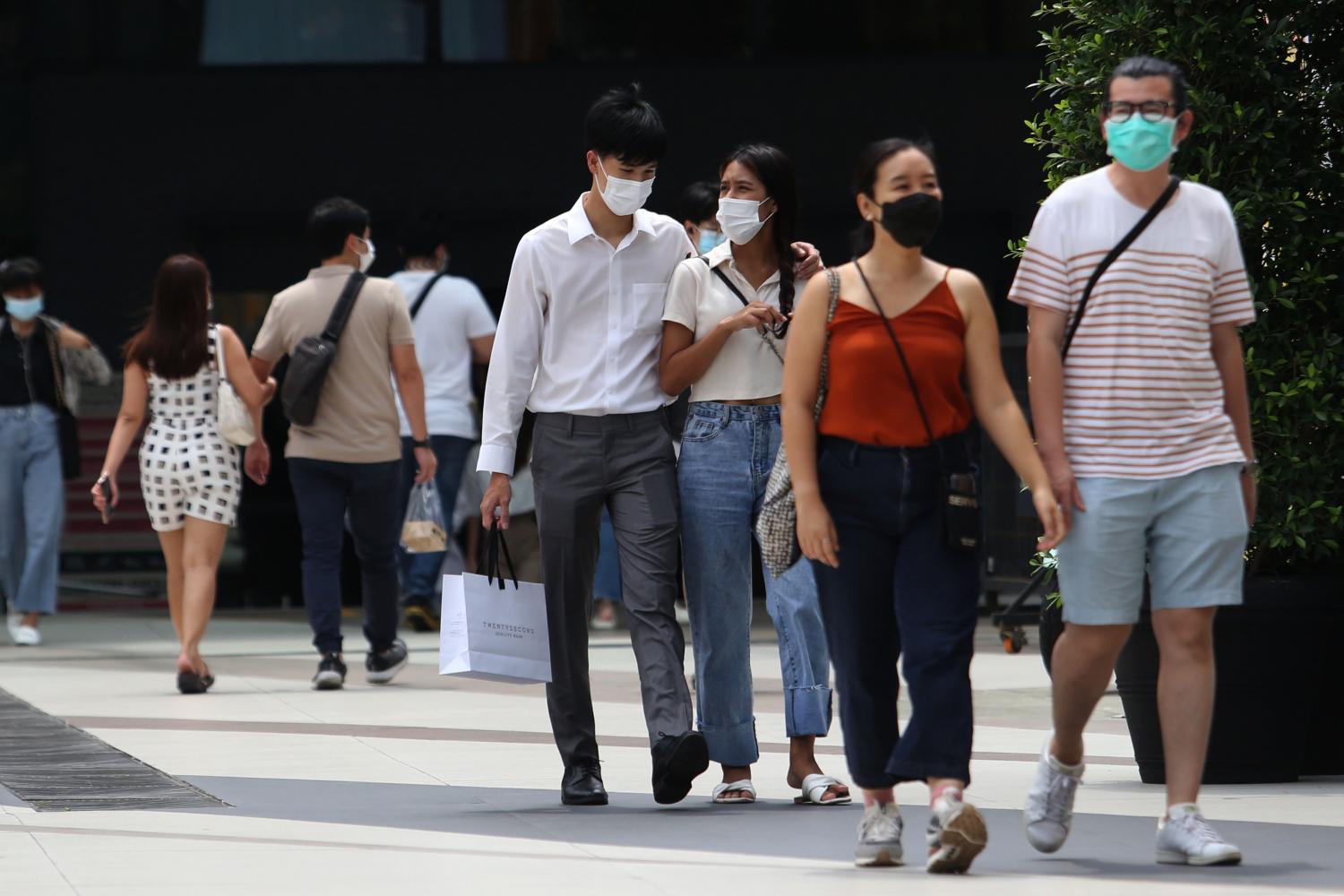
The Federation of Thai Industries (FTI) is working with state agencies to better manage the increasing amount of discarded face masks, which are now becoming an infectious waste threat to the environment.
The effort comes amid growing concern over masks comingling with other types of rubbish and leaking into water sources.
The number of face masks has piled up since Covid-19 struck Thailand early last year.
Apiphop Phungchaikul, vice-chairman of FTI's Plastic Industry Club, stressed the need for proper disposal of used face masks to avoid the negative impact on both the environment and public health.
"Used face masks must be destroyed in incinerators to prevent the risk of disease and someone reusing them," he said.
The FTI and the government are also considering using red plastic bags to collect used face masks. They plan to designate areas for people to discard the masks as well as launch measures to prevent their reuse, said Mr Apiphop.
The government should also start a campaign to educate people and encourage them to discard used face masks in specific bins, he said.
The FTI expects to finalise the measures as soon as possible.
Chulalongkorn University's Veterinary Medical Aquatic Animal Research Centre earlier sent a letter to the Plastic Industry Club asking it to help push for proper management of discarded masks.
Some masks found in the water have already started to affect animals.
Mr Apiphop said quick action to solve the problem is needed because "we have to live with face masks for a long time as we wait for Covid-19 vaccinations".
The FTI said the pandemic has also increased the amount of plastic waste, especially food and beverage packages as people follow state guidelines to work from home.
"People order food and drinks through delivery services and waste has increased, but it's necessary to help the government control the virus spread," he said.
Giant retailers, plastic manufacturers and department stores joined the state's campaign to stop handing out single-use plastic bags to customers starting Jan 1, 2020, though some observers suggested that effort was short-lived.
